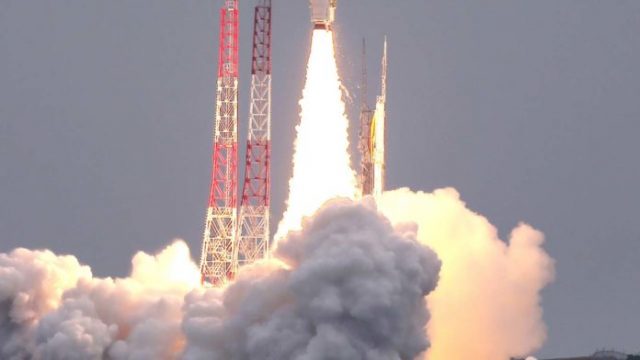Dappa Maharajah.
FEDERAL University of Technology, Akure (FUTA) launches the five satellites of the BIRDS-1Project including the Nigerian CubeSat, code named NigeriaEdusat-1, from the International Space Station (ISS), KIBO into the orbit.
This was contained in a statement made available to journalists in Akure yesterday by the Head of Information Unit of the institution, Mr. Adebanjo Adegbenro, who revealed that the project has reached the final stage.
Adegbenro added that the deployment the satellites will go round the earth taking images and other critical data which can be viewed and analyzed at the ground stations, which will be based at FUTA.
“The satellites of Japan, Ghana, and Mongolia, will be released at this time: 8:50 GMT/17:50 JST (1st Deployment). The satellites of Bangladesh and Nigeria, will be released at this time: 9:10 GMT/18:10 JST (2nd Deployment).
The Nigerian CubeSat, code named NigeriaEdusat-1, is designed, built and owned by FUTA in collaboration with National Space Research and Development Agency (NASRDA), Abuja, Nigeria, and Kyushu Institute of Technology Japan.
Mr. Ibukun Adebolu from FUTA’s Department of Mechanical Engineering, is the representative of Nigeria on the project.
He explained that ”NigeriaEduSat-1, along with the four other nanosatellites of the BIRDS constellation will perform three onboard missions.
He explained that ”NigeriaEduSat-1, along with the four other nanosatellites of the BIRDS constellation will perform three onboard missions.
“First, we aim to take low and high resolution pictures of each home country of the participating members of the constellation. Each satellite is equipped with a 0.3 megapixel camera as well as a 5 mega pixel camera.
“We hope to capture distinct features of each target country, including borderline images, major rivers etc. The second mission on board each satellite is aimed at space education and outreach. Popular songs and poems are converted into digital format and uplinked to the satellite.
“The satellite stores the uplink file, reassembles it through an onboard digi-singer synthesizer and retransmits the file as an audio file that can be received on ground by amateur radio operators.”
Adebolu noted that the “mission is aimed at promoting interest in satellite technology and space careers among children and youths, who can participate by coding the songs to be re-transmitted during major outreach events.
“The third onboard mission has a scientific nature. It involves the measurement of atmospheric density in the region 400 km above earth,” he said, enumerating the importance of the project.
“This mission is important because it utilizes the advantage of multiple satellites collecting data simultaneously at different points in the region, enhancing the body of scientific literature already available.
“The effects of atmospheric drag on the satellite is computed and used to determine the density at points of interest in the region and also used in further calculations to determine each satellite position in orbit without using a GPS. Apart from the three on-orbit missions, there are also three ground based missions.”
While the Vice Chancellor, Professor Joseph Fuwape, said with the steady progress being made on the project, the university has acquitted itself creditably as the country’s leading University of Technology.
Fuwape pledged, without mincing words, that FUTA would ensure that the country reaps maximally from the project and will lead the dissemination of scientific knowledge in that field of satellite technology.




